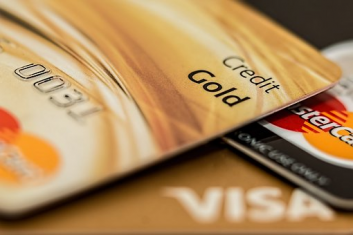When applying for a credit card or getting a loan, your credit score is usually one of the most critical factors. So it makes sense that it might be harder to open new high risk merchant accounts online if you have bad credit. However, other things may impact your ability to get approved for an account.
Different Credit Score Profile For High-Risk And Low-Risk Merchant Account
There is no one-size-fits-all credit score requirement for every high-risk merchant. The only thing that matters is the applicant’s ability to repay their outstanding debts, which can be difficult to determine without a complete financial picture. One inevitable thing is that an applicant with bad credit will have a more challenging time securing financing than someone with excellent credit.
A high-risk merchant has a different credit score profile than a lower-risk merchant. A high-risk merchant has a higher rate of chargebacks and reversals and may also have other negative factors, such as late payments or collections accounts on their report. High-risk merchants are more likely to be new business owners who haven’t had enough time or opportunity to establish themselves yet, so they tend not to have established any track record with financial institutions or current customers because they haven’t had much time yet!
Is Credit Score A Significant Factor For A Merchant Account?
When looking for a merchant account, you may find that your credit score is one of the most critical factors. A credit score measures how likely you are to repay a debt, and it’s based on information from your credit report. Your credit report includes information about your payment history, outstanding balances, length of credit history, and more.
A high-risk merchant account will require a decent (but not perfect) credit score so the bank can assess how well-suited your business is for its service. For example: if you have an excellent payment history and have only used up half of your available credit over the last year or two, this will indicate to banks that they can trust you with their service because there’s little chance that they’ll lose money if they provide it to you. However, if there are multiple late payments listed on your report or large amounts owed across multiple accounts—even if it’s been years since then—then banks will see these as red flags indicating problematic behavior, which could result in them losing money when providing services like funding high-risk merchants.
Credit score will be one of many qualifications from the merchant provider.
First, it’s important to note that a low credit score is not always an automatic disqualification for opening a high-risk merchant account. Some providers may not use your credit score, instead relying on other factors like your business history and number of employees.
Additionally, having a high credit score doesn’t necessarily mean you will qualify for every high-risk merchant account. Some providers may consider borrowers with bad or no credit history more reliable than those with outstanding scores because they have more incentive to repay the loan to rebuild their financial reputation.

If you have bad credit, you can still get a merchant account.
If you have bad credit, you can still get a merchant account. However, some additional considerations should be made. A merchant account is a line of credit that allows businesses to accept payment with credit cards such as Visa and MasterCard. If you have good credit, this will likely be the only merchant account available since it is less risky for the bank compared to high-risk merchants (but not impossible).
For less-than-perfect scores, there are options, but they tend to come at a cost:
- You may have to pay more upfront in fees and deposits
- There may be higher interest rates on your balance
- A security deposit may be required from which funds could be withdrawn if payments cannot be made as agreed upon by both parties involved in processing transactions through their network(s).
Read Also: Everything We Need To Know About Transaction Charges
Other factors may outweigh your poor credit history.
Your credit score is not the only factor determining whether a provider will open an account with you. Other factors may outweigh your poor credit history and allow you to obtain an account even with a poor credit score.
Providers may look at other factors, such as your business and your industry. They could also consider whether or not you have the capital to invest in their services or if you plan on making regular deposits into your merchant account for processing transactions through them.
In addition to these things, providers may also look at your business plan before granting an account; this could be especially important if it’s clear from your plan that there will be plenty of activity on the card associated with the merchant account.
Summing It Up!
In conclusion, if you’re considering opening an account for your business, don’t stress about your credit score. Just ensure it’s in good standing and that you have enough assets to cover any losses due to fraud or other reasons.

